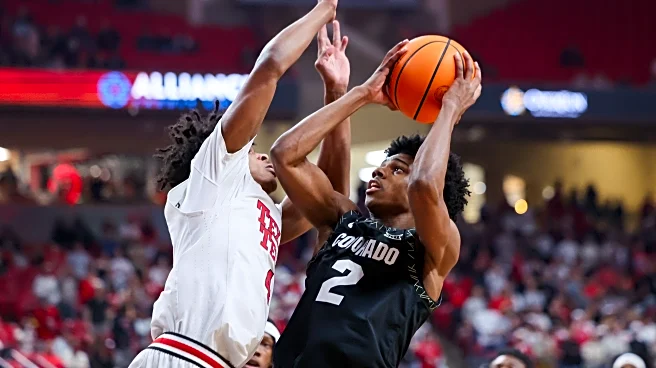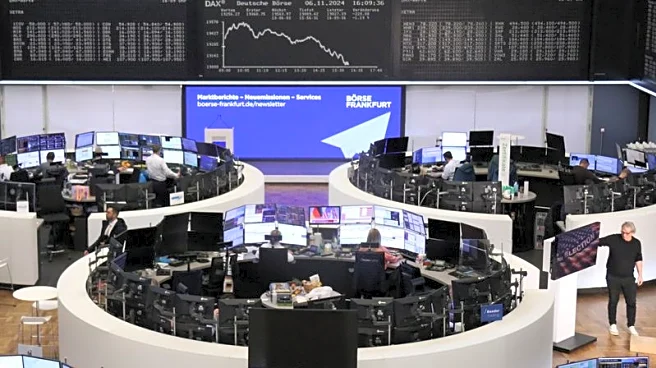What's Happening?
Top congressional leaders are meeting with President Trump at the White House to discuss measures to prevent a government shutdown. The meeting includes Senate Majority Leader John Thune, Senate Minority Leader Chuck Schumer, House Speaker Mike Johnson, and House Minority Leader Hakeem Jeffries. The discussion centers around a short-term stopgap bill to fund the government, which has faced opposition in the Senate. Democrats are pushing for permanent tax cuts from the Affordable Care Act and the repeal of health care program cuts, while Republicans focus on funding the government first.
Why It's Important?
The potential government shutdown poses significant risks to federal operations and the economy. Without congressional action, nonessential services could be halted, affecting federal workers and public services. The meeting highlights the ongoing political struggle between Democrats and Republicans over health care and budget priorities. The outcome of these negotiations will impact government funding and policy decisions, with implications for public services and economic stability.
What's Next?
If the government shutdown occurs, it could lead to delays in services and financial strain on federal employees. The negotiations between congressional leaders and President Trump will be crucial in determining the resolution of budgetary conflicts. The political dynamics and public pressure may influence the outcome of these discussions, with potential compromises or continued stalemate.
Beyond the Headlines
The government shutdown debate reflects broader issues of political polarization and governance challenges in the U.S. The struggle over budget priorities highlights the complexities of balancing fiscal responsibility with social welfare. The negotiations may set precedents for future budgetary and policy decisions, influencing the political landscape.











